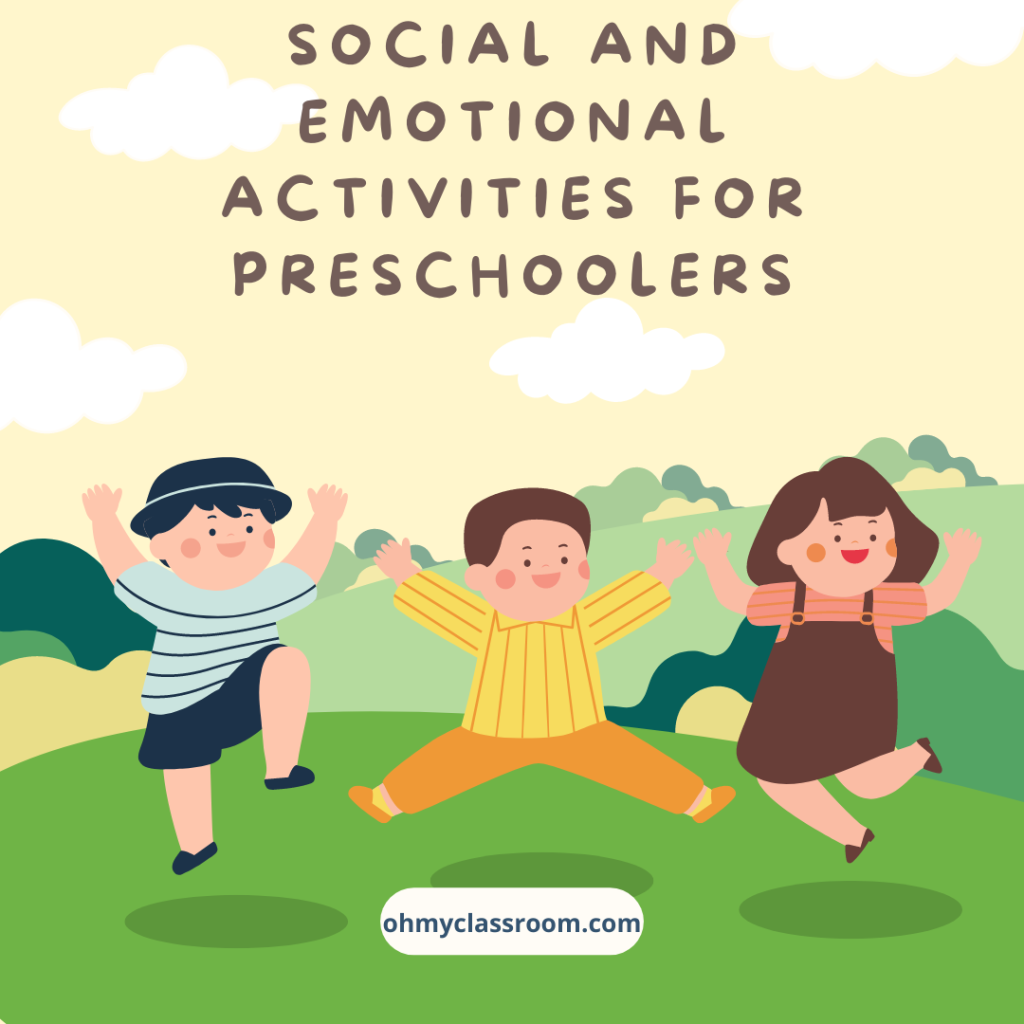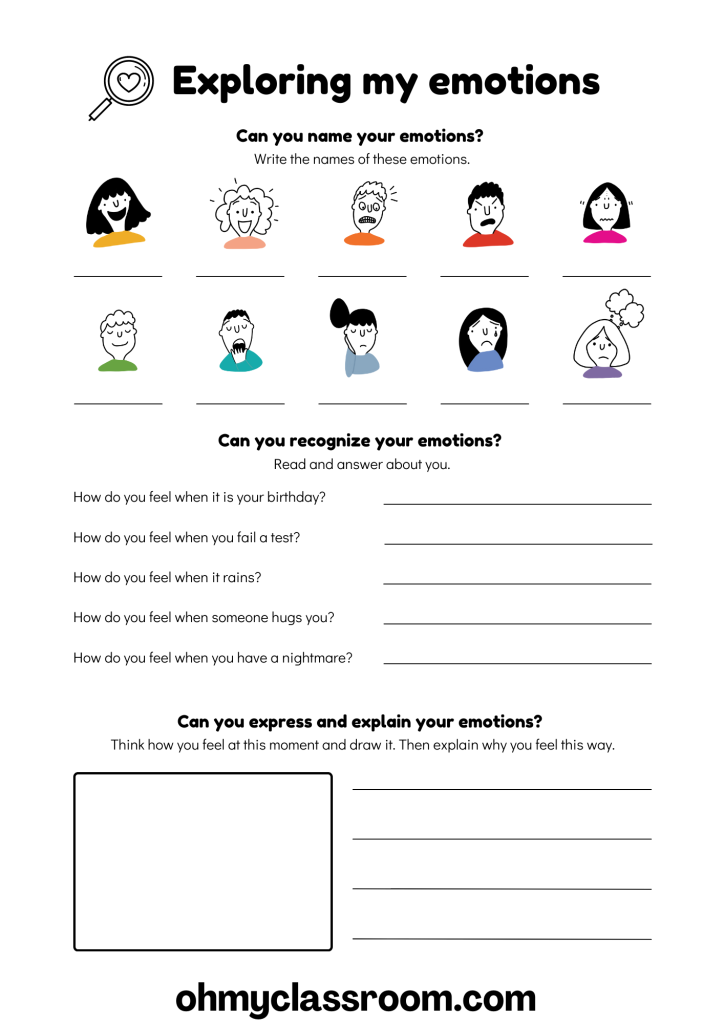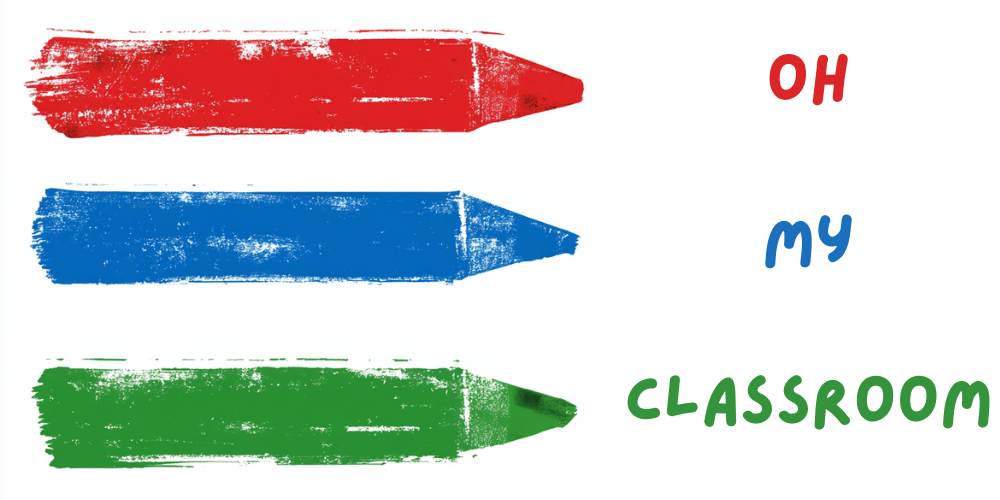Social and emotional development of 2 to 5 year old children is a critical part of a child’s growth and learning.
It helps children to build relationships, manage their emotions, and navigate social situations.
As parents and caregivers, it is important to provide preschoolers with activities that promote their social and emotional development.
We will discuss some creative and engaging social and emotional activities for preschoolers, toddlers who are generally 2 to 5 year olds.

Building Relationships
Preschool is often the first time children are exposed to a social environment outside of their family. It is important for them to learn how to form positive relationships with peers and adults.
This will help them develop social skills, such as taking turns, sharing, and cooperating, which will be useful in future relationships.
Managing Emotions
Preschoolers are still learning how to regulate their emotions. They may struggle with understanding and expressing their feelings in a healthy way.
Learning how to manage emotions, including recognizing and labeling them, is important for healthy emotional development. It helps children develop self-awareness, empathy, and self-control.
Navigating Social Situations
Preschoolers encounter a range of social situations, from making new friends to resolving conflicts.
Developing social skills helps children navigate these situations more effectively. They learn how to communicate their needs and feelings, listen to others, and find solutions to problems. This helps build their confidence and resilience.
Academic Success
Social and emotional development is linked to academic success. Preschoolers who have developed social skills are better able to engage in classroom activities and communicate with teachers and peers.
They are more likely to have positive attitudes toward school and academic achievement.
Mental Health
Good social and emotional development in preschoolers can help prevent mental health problems later in life.
Children who learn healthy ways to cope with stress, understand their emotions, and have positive relationships with others are more likely to have good mental health outcomes.
Related: Self Concept Preschool Activities
16 Fun Social & Emotional Activities for Preschoolers
Puppet Show:
Puppets are a fun way for preschoolers to express their emotions and act out different scenarios. You can use puppets to teach preschoolers about different emotions or to role-play different social situations.
Dance Party:
Dancing is a great way for preschoolers to express themselves and their emotions. Turn on some music and encourage children to dance freely, or teach them a new dance that they can perform together.
Related: 10 Music and Movement Activities for Toddlers & Preschoolers
Story Telling
Reading stories that focus on social and emotional development is an excellent way to help preschoolers understand and manage their emotions. Books that explore feelings or books about making friends are great options.
Freeze Dance:
Freeze dance is a fun game that helps preschoolers to develop their self-regulation skills. Play music and have the children dance. When the music stops, they must freeze and hold their pose until the music starts again.
Emotion Charades:

Charades is a classic game that preschoolers love. Play a game of emotion charades where children act out different emotions, and others must guess what emotion they are portraying.
Role-Playing:
Role-playing is an excellent way for preschoolers to practice social situations and develop their communication skills. You can create different scenarios, such as going to the doctor or grocery shopping, and encourage children to take turns acting out the roles.
Play Dough:
Play dough is a fun and creative way for preschoolers to express their emotions. You can give children different colors of play dough and encourage them to create different shapes and figures that represent their feelings. This activity can also help children with their fine motor skills.
Feelings Chart:

Creating a feelings chart with different emotions and facial expressions can help preschoolers to identify and communicate their emotions. You can use pictures or drawings to represent each emotion and encourage children to point to the emotion that matches how they are feeling.
Sharing Circle:
A sharing circle is a great way for preschoolers to practice their listening and communication skills. Children can take turns sharing something about themselves, such as their favorite toy or something they did over the weekend. Encourage other children to listen attentively and ask questions or provide positive feedback.
Mindfulness Exercises:
Mindfulness exercises can help preschoolers to develop their self-awareness and emotional regulation skills. You can guide children through simple breathing exercises or teach them to focus on their senses and surroundings.
Sensory Bins:
Sensory bins filled with different textures and materials can help preschoolers to explore and regulate their emotions. For example, a bin filled with rice, sand or beans can help children to relax and focus their attention.
Yoga:
Yoga is a great way for preschoolers to develop self-awareness, improve their focus and learn relaxation techniques. You can use simple poses and breathing exercises to guide children through a yoga practice.
Nature Walks:
Taking preschoolers on nature walks can help them to connect with the natural world, develop their curiosity and foster a sense of wonder. Encourage children to explore their surroundings and notice the different sights, sounds and smells they encounter.
Building Blocks:
Building with blocks is a great way for preschoolers to develop their creativity, problem-solving skills and social skills. Encourage children to work together to build structures and talk about their ideas and strategies.
Art Activities:
Art activities, such as drawing, painting or collage-making, can help preschoolers to express their emotions and develop their creativity. Encourage children to create art that represents their feelings or experiences.
Dramatic Play:
Dramatic play allows preschoolers to experiment with different roles and scenarios, helping them to develop their imagination and social skills. Set up a play area with costumes and props, and encourage children to act out different scenarios or roles.
Related: 25 Indoor and Outdoor Group Games for Preschool Kids
Conclusion
Promoting social and emotional development in preschoolers is crucial for their overall growth and well-being.
These activities provide fun and engaging ways for children to learn about and manage their emotions, build relationships, and navigate social situations.
As parents and caregivers, incorporating these activities into daily routines can help support children’s social and emotional development and set them up for success in the future.
Reference
Jones, S. M., & Bouffard, S. M. (2012). Social and emotional learning in schools: From programs to strategies. Social Policy Report, 26(4), 1-33.
This report summarizes the evidence on effective social and emotional learning programs and strategies in schools, including preschool settings.
Denham, S. A., Bassett, H. H., & Wyatt, T. M. (2014). Gender differences in the socialization of preschoolers’ emotional competence. New Directions for Child and Adolescent Development, 2014(143), 29-49.
This study examines gender differences in the socialization of emotional competence in preschoolers, highlighting the importance of providing opportunities for emotional expression and social support.
Bierman, K. L., Domitrovich, C. E., Nix, R. L., Gest, S. D., Welsh, J. A., Greenberg, M. T., … & Gill, S. (2008). Promoting academic and social-emotional school readiness: The Head Start REDI program. Child Development, 79(6), 1802-1817.
This study evaluates the effectiveness of a social-emotional and literacy intervention program for preschoolers, demonstrating positive impacts on both academic and social-emotional outcomes.

